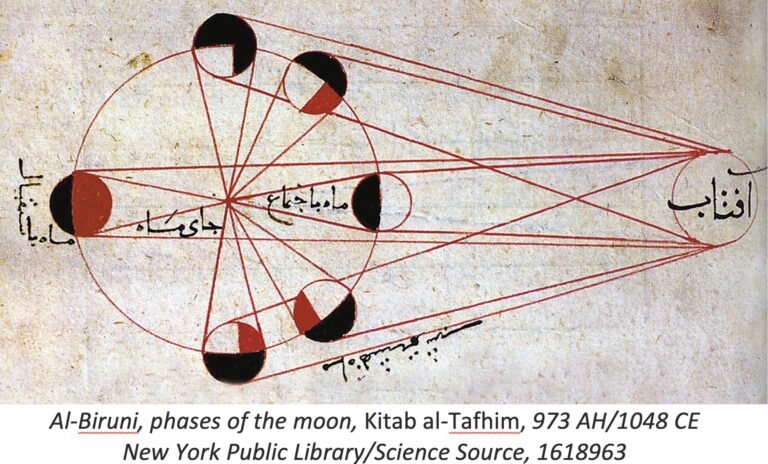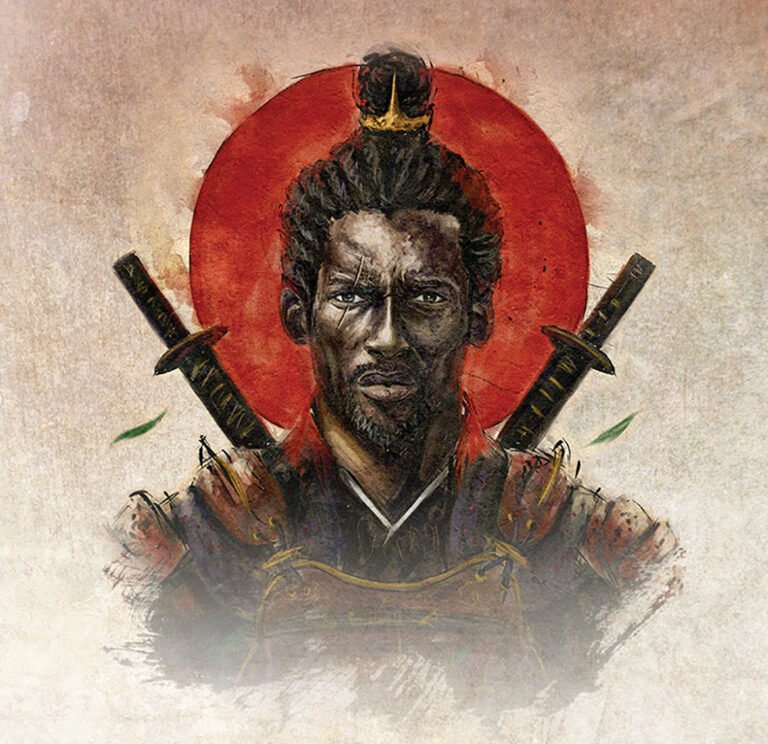
Previous Offerings
FALL 2024
SUMMER 2024
SPRING 2024
Since 2021, Let’s Learn! has been offering online classes, workshops (and playshops!), conversations and performances free to anyone with internet access anywhere in the world. Please check out our past offerings, many of which provide free links to videos of the sessions.

Previous Offerings
SPRING 2024
Ask a Young Muslim
Ms. Zainab Adamou-Mohamed and Dr. Omar H. Ali
Tuesday, January 16, 7:30 pm Eastern U.S. Time
With the humanitarian crisis in Gaza and rising Islamophobia around the world, what do Muslims believe and practice? What histories and values do Muslims bring to the contemporary world? How are young Muslims, in particular, coping with the misunderstandings and discrimination they are now facing? This is a chance to ask questions of Muslims who face these particular challenges. Join Zainab Adamou-Mohamed, President ofthe Muslim Student Association at the University of North Carolina at Greensboro, and other young Muslims, along with the Dean of the Honors College, Dr. Omar Ali, for an open discussion centering on these and other questions you bring. All are welcome and encouraged to be part of this conversation.
Islam in the Global History of Science
Dr. Omar Ali and Dr. Nadja Cech
Tuesday, February 6, 2:00 pm, Eastern U.S. Time
Muslim scientists and scholars from Baghdad to Cordoba and beyond, lay the foundation for the development of modern astronomy, chemistry, and medicine. Join historian Dr. Omar Ali and chemist Dr. Nadja Cech as they explore the important scientific contributions of figures such as Ibn al-Haytham, Al-Khwarizmi, Jabir Ibn Hayyan, and Ibn Sina, among others. This session is part of a semester-long seminar, “Towards a Global History of Science” at the University of North Carolina Greensboro that locates modern science as part of a seamless history of people from societies across the globe since the ancient world.
African Samurai: The True Story of Yasuke, Legendary Black Warrior in Feudal Japan
Prof. Thomas Lockley
Tuesday, February 13, 7:00 pm, Eastern U.S. Time
Wednesday, February 14, 9:00 am, JAPAN
As part of Black History Month, learn about the remarkable life of history’s first foreign-born samurai and his journey from Mozambique to the heights of 16th century Japanese society. This class is taught by Prof. Thomas Lockley, co-author of the only English language biography of Yauke, and a professor at Nihon University in Tokyo, where he teaches courses on the international and multicultural history of Japan and the rest of East Asia. This is event is being co-sponsored by the Japanese Club and the Japanese Studies Program at UNC Greensboro.
Introduction to Lebanon
Christelle Barakat
Saturday, February 17, 11:00 am – 12:30 pm, Eastern U.S. Time; 6:00 p.m. – 7:30 p.m., Eastern European Time (Lebanon)
Lebanon has always been at the heart of various controversies, particularly during recent times. Located at the eastern edge of the Mediterranean Sea, this small sliver of land has been ruled by the Ottoman Empire, been under a French mandate, gained independence in 1943, and survived a vehement 1975-1990 civil war. Its people and culture embody a rich and diverse history marked by resilience and advocacy for change. Christelle Barakat, a researcher with the Lebanese Center for Policy Studies, will introduce this history, share the nation’s challenges in recent years, including the ongoing impacts of the 2019 economic crisis, the COVID-19 pandemic, and the Beirut port blast, and answer your questions about the politics, culture, and tenets of coexistence within this important nation at one of the crossroads of the world.
Recovering Our Lost Histories
Dr. Dan Friedman
Saturday, February 24, 1:00 pm – 2:30 pm, Eastern U.S. Time
Our families are repositories of political history. Were your parents or grandparents active in the Civil Rights Movement, the Labor Movement, the Peace Movement, the struggle for independence of your country, the fights to overthrow a dictatorship? So much of the history that we “ordinary people” make has been forgotten or distorted. This is a chance to share some of that lost history with others from around the world. Dan Friedman, historian, and playwright will lead this speaking-aloud of our family’s political histories. Come prepared to share your story, a photo (if you have one), and, if they’re down for it, bring you family along!
The Art and Science of Challah
Joan Epstein and Dr. Nick Gross
Sunday, March 3, 12:00 pm – 1:30 pm, Eastern U.S. Time
Bread making is an ancient tradition and the baking of celebratory breads is common throughout many cultures. Each ingredient in the bread plays a specific role and it is crucial to prepare the dough in a particular way. In the Jewish tradition, challah (an egg bread that is pleated or woven) serves as a celebratory bread for the sabbath. Join our two instructors, Dr. Nick Gross, a research scientist at Boston University, and Joan Epstein, an educator based in Cambridge MA, as they demonstrate challah making and discuss the science behind the ingredients and the bread making process. The class will conclude with a demonstration of some of the shaping that is possible with challah along with a discussion of its role or meaning in the celebration of Passover.
Scientific and Cultural Perspectives on the “Great American Eclipse”
Dr. Cherilynn Morrow and Dr. Nick Gross
Saturday, March 9, 2:00 pm – 3:30 pm, Eastern U.S. Time 11:00 am – 12:30 pm Pacific U.S. Time
On April 8th, 2024, everyone in the continental United States will experience a solar eclipse—the last one visible in the U.S. for the next 20 years!
Throughout human history and across human cultures, eclipses have been experienced as dramatic events that have been recorded in a variety of ways. Chaco Canyon, a UN World Heritage Site in what is now northwestern New Mexico, was a major cultural center of the Ancestral Puebloan people. It contains the Rock of the Sun, an image carved into a rock face, that may be interpreted as the Chaco residents’ impression of the 1097 total solar eclipse. The NASA PUNCH Outreach program studies and educates on the similarities and differences between modern and ancient Sun-watching. Join Dr. Cherilynn Morrow, who is leading the NASA PUNCH Mission Outreach effort, and Dr. Nicholas Gross of Boston University, as they lead a class exploring the science of an eclipse as well as the historical and cultural significance of the Rock of the Sun and other solar observations.
How to Organize a Climate Change Project
Farzana Gandhi and Dr. Jim Martinez
Saturday, March 16, 12:00 pm – 1:30 pm, Eastern U.S. Time; 9:00 am – 10:30 am, Pacific U.S. Time
With temperatures rising, hurricanes intensifying, and forests burning, it’s easy to feel powerless in the face of global warming. In this workshop you will learn the basics of organizing a climate change response project in your community. Architect Farzana Gandhi AIA, LEED, AP, and Dr. Jim Martinez, of the New York Institute of Technology, the co-founders of Collective Infrastructures, will help you understand your community’s challenges ad needs, lead you in a visualization exercise to spark action, and explore the key steps required to transform your ideas for responding to climate change into realities. This workshop aims to empower you with the knowledge and tools to effectively organize and contribute to positive environmental change within your community.
Let’s Learn Juneteenth
Dr. Jessie Fields and Dr. Raquell Holmes
Saturday March 23, 3:00 pm – 4:30 pm, Eastern U.S. Time, 12:00 pm – 1:30 pm, Pacific U.S. Time
In 2021 Juneteenth (June 19th) became an official holiday in the United States celebrating the emancipation of African Americans from slavery. For generations before that it has been celebrated in Black communities. It was born in Galveston Bay, Texas on June 19, 1865. The Confederacy and plantation owners had moved their enslaved people to continue slavery. It took nearly 2 years for approximately 2,000 Union troops to arrive and enforce emancipation. The celebration of emancipation, Juneteenth, then spread over the country.
In 2022, Dr. Raquell Holmes initiated the national and international Freedom
Festival (https://freedomfestivalusa.org), stretching from Juneteenth to U.S. Independence on the 4th of July, celebrating and exploring the connections between freedom and independence. This year, in the run-up to the festival, Dr. Holmes and her fellow activist Dr. Jessie Fields, will lead a conversation with organizers of grassroots Juneteenth celebrations across the U.S. to share what their celebrations are like, how long they’ve been held, why it’s important to them, and how this celebration informs their community and conversations of freedom. This is a chance to learn a lot about U.S. history and culture and to explore the universal implications of Juneteenth.
Discord and Harmony: The Struggle for Freedom in the USA Through Blues, Jazz, Soul and Hip-Hop
Allen Cox and Dan Belmont
Saturday, April 13, 12:00 pm – 2:00 pm., Eastern U.S. Time; 9:00 am – 10:30 am Pacific U.S. Time
This will be a look at—and a listen to—the role of African American music has played in embodying and inspiring the ongoing struggle for freedom and full equality in the U.S.A. The session will be a mix of music video clips (Billie Holiday, Nina Simone and Stevie Wonder, among others) and informal conversation led by progressive musician and composer Dan Belmont and life-long grassroots organizer and leader Allen Cox.
Let’s Learn Creating our Mental Health
Dr. Jessie Fields, Dr. Hugh Polk and Rachel Mickenberg
Saturday, April 27, 1:00 pm – 2:30 pm, Eastern U.S. Time;
10:00 am – 11:30 am Pacific U.S. Time;
6:00 pm – 7:30 pm, Lagos Time;
7:00 pm – 8:30 pm, Cape Town Time.
In most of our societies so called-mental illness is either a taboo subject or something that specialists—doctors and therapists—are supposed to help us with (if we can afford to pay them). What if, instead, we got together in groups to talk about our emotionality and collectively create our mental health? That’s just the activity that psychiatrist Hugh Polk, medical doctor and community organizer Jessie Fields, and social therapist Rachel Mickenberg have been leading for years, both online and in person at community centers, churches, senior centers and food pantries. Don’t miss this opportunity to participate in the creation of an international conversation in which we share our emotions and pain not to analyze or diagnosis them, but to support each other to grow and develop.
Why We Are All So Lonely—And What We Can Do About It
Carrie Sackett and Murray Dabby
THIS CLASS IS BEING RESCHEDULED FOR THE FALL
The Revolutionary History of Hip Hop
Desire Wandan
Saturday, May 11, 2:00 pm -3:30 pm, Eastern U.S. Time; 11:00 am – 12:30 pm, Pacific U.S. Time
Hip Hop culture emerged from the poor working-class communities of color in the Bronx and Brooklyn and spread around the world as a culture of the disenfranchised. Join Desire Wandan, the East Side Institute’s Media and Tech Producer, host of its podcast “All Power to the Developing,” and nationally acclaimed hip hop dancer as he looks at the revolutionary impulse of hip hop—both a cry of outrage and a celebration of life—which continues to draw inspiration and innovation from oppressed peoples and communities around the world.













